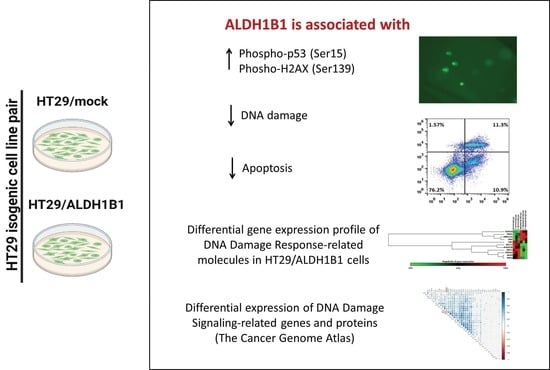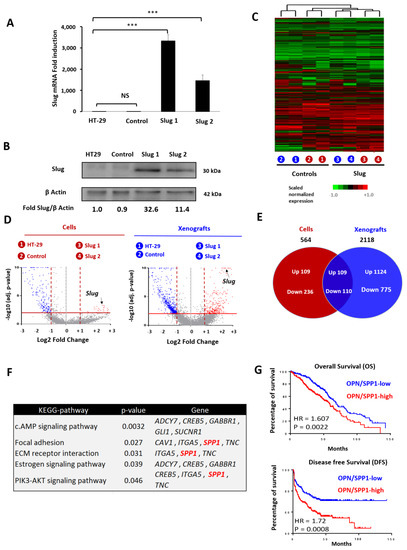Molecular and Cellular Mechanisms of Cancers: Colorectal Cancer
A topical collection in Cells (ISSN 2073-4409). This collection belongs to the section "Cellular Pathology".
Viewed by 10157
Share This Topical Collection
Editors
 Dr. Peter J. K. Kuppen
Dr. Peter J. K. Kuppen
 Dr. Peter J. K. Kuppen
Dr. Peter J. K. Kuppen
E-Mail
Website
Collection Editor
Department of Surgery, Leiden University Medical Center, 2333 ZA Leiden, The Netherlands
Interests: colorectal cancer; tumor-immmune interactions; cancer genetics and epigenetics; immunotherapy; biomarkers
Special Issues, Collections and Topics in MDPI journals
 Dr. Luca Roncucci
Dr. Luca Roncucci
 Dr. Luca Roncucci
Dr. Luca Roncucci
E-Mail
Website
Collection Editor
Department of Medical and Surgical Sciences, University of Modena and Reggio Emilia, I-41125 Modena, Italy
Interests: colorectal cancer; colorectal carcinogenesis; inflammation and metabolic risk factors for cancer; hereditary colorectal cancer; colorectal adenomas; aberrant crypt foci
Special Issues, Collections and Topics in MDPI journals
Topical Collection Information
Dear Colleagues,
With over 700,000 deaths world-wide annually, colorectal cancer remains a large societal burden. Our knowledge of the underlying biology of colorectal tumor formation is impressive, but still, we are not able to efficiently fight this disease. Recent insights are that we should not only focus on biological processes that take place in the tumor cell itself, steered by both genetic and epigenetic events, but also on the response of the environment. This Topic Collection aims to focus on that environmental interaction and its steering processes, and on the mechanisms involved in the early and later steps of colorectal cancer development. Finally, we will discuss the conditions that may lead to a better clinical approach to colorectal cancer.
We very much look forward to your contributions.
Dr. Peter Kuppen
Prof. Luca Roncucci
Collection Editors
Manuscript Submission Information
Manuscripts should be submitted online at www.mdpi.com by registering and logging in to this website. Once you are registered, click here to go to the submission form. Manuscripts can be submitted until the deadline. All submissions that pass pre-check are peer-reviewed. Accepted papers will be published continuously in the journal (as soon as accepted) and will be listed together on the collection website. Research articles, review articles as well as short communications are invited. For planned papers, a title and short abstract (about 100 words) can be sent to the Editorial Office for announcement on this website.
Submitted manuscripts should not have been published previously, nor be under consideration for publication elsewhere (except conference proceedings papers). All manuscripts are thoroughly refereed through a single-blind peer-review process. A guide for authors and other relevant information for submission of manuscripts is available on the Instructions for Authors page. Cells is an international peer-reviewed open access semimonthly journal published by MDPI.
Please visit the Instructions for Authors page before submitting a manuscript.
The Article Processing Charge (APC) for publication in this open access journal is 2700 CHF (Swiss Francs).
Submitted papers should be well formatted and use good English. Authors may use MDPI's
English editing service prior to publication or during author revisions.
Keywords
- colorectal cancer
- tumor microenvironment
- tumor host response
- tumor genetics and epigenetics
- colorectal carcinogenesis
- colorectal cancer prevention
Published Papers (4 papers)
Open AccessArticle
Exploring the Potential of Synthetic Cannabinoids: Modulation of Biological Activity of Normal and Cancerous Human Colon Epithelial Cells
by
Roman Paduch, Katarzyna Szwaczko, Kamil Dziuba and Adrian Wiater
Viewed by 703
Abstract
Colorectal cancer (CRC) is a global problem. Oncology currently practices conventional methods of treating this carcinoma, including surgery, chemotherapy, and radiotherapy. Unfortunately, their efficacy is low; hence, the exploration of new therapies is critical. Recently, many efforts have focused on developing safe and
[...] Read more.
Colorectal cancer (CRC) is a global problem. Oncology currently practices conventional methods of treating this carcinoma, including surgery, chemotherapy, and radiotherapy. Unfortunately, their efficacy is low; hence, the exploration of new therapies is critical. Recently, many efforts have focused on developing safe and effective anticancer compounds. Some of them include cannabinoids. In the present study, we obtained cannabinoids, such as cannabidiol (CBD), abnormal cannabigerol (abn-CBG), cannabichromene (CBC), and cannabicitran (CBT), by chemical synthesis and performed the biological evaluation of their activity on colon cancer cells. In this study, we analyzed the effects of selected cannabinoids on the lifespan and metabolic activity of normal colonic epithelial cells and cancer colon cells. This study demonstrated that cannabinoids can induce apoptosis in cancer cells by modulating mitochondrial dehydrogenase activity and cellular membrane integrity. The tested cannabinoids also influenced cell cycle progression. We also investigated the antioxidant activity of cannabinoids and established a relationship between the type of cannabinoid and nitric oxide (NO) production in normal and cancerous colon cells. To conclude, it seems that, due to their interesting properties, the cannabinoids studied may constitute an interesting target for further research aimed at their use in alternative or combined therapies for human colon cancer.
Full article
►▼
Show Figures
Open AccessArticle
The Influence of Betulin and Its Derivatives on Selected Colorectal Cancer Cell Lines’ Viability and Their Antioxidant Systems
by
Marcel Madej, Celina Kruszniewska-Rajs, Magdalena Kimsa-Dudek, Agnieszka Synowiec-Wojtarowicz, Elwira Chrobak, Ewa Bębenek, Stanisław Boryczka, Stanisław Głuszek, Jolanta Adamska, Sebastian Kubica, Jarosław Matykiewicz and Joanna Magdalena Gola
Viewed by 969
Abstract
Oxidative stress is considered one of the main reasons for the development of colorectal cancer (CRC). Depending on the stage of the disease, variable activity of the main antioxidant enzymes, i.e., superoxide dismutase (SOD), catalase (CAT) and glutathione peroxidase (GPx), is observed. Due
[...] Read more.
Oxidative stress is considered one of the main reasons for the development of colorectal cancer (CRC). Depending on the stage of the disease, variable activity of the main antioxidant enzymes, i.e., superoxide dismutase (SOD), catalase (CAT) and glutathione peroxidase (GPx), is observed. Due to limited treatment methods for CRC, new substances with potential antitumor activity targeting pathways related to oxidative stress are currently being sought, with substances of natural origin, including betulin, leading the way. The betulin molecule is chemically modified to obtain new derivatives with improved pharmacokinetic properties and higher biological activity. The aim of this study was to evaluate the effects of betulin and its new derivatives on viability and major antioxidant systems in colorectal cancer cell lines. The study showed that betulin and its derivative EB5 affect the antioxidant enzyme activity to varying degrees at both the protein and mRNA levels. The SW1116 cell line is more resistant to the tested compounds than RKO, which may be due to differences in the genetic and epigenetic profiles of these lines.
Full article
►▼
Show Figures
Open AccessArticle
Aldehyde Dehydrogenase 1B1 Is Implicated in DNA Damage Response in Human Colorectal Adenocarcinoma
by
Ilias Tsochantaridis, Alexandros Kontopoulos, Georgia-Persephoni Voulgaridou, Margaritis Tsifintaris, Charisios Triantafyllou and Aglaia Pappa
Cited by 7 | Viewed by 3870
Abstract
Aldehyde dehydrogenase 1B1 (ALDH1B1) has been correlated with colorectal tumorigenesis and is considered a potential biomarker for colon cancer. Its expression has been associated with attenuation of the cell cycle in the G2/M phase and resistance to DNA damaging agents. The present study
[...] Read more.
Aldehyde dehydrogenase 1B1 (ALDH1B1) has been correlated with colorectal tumorigenesis and is considered a potential biomarker for colon cancer. Its expression has been associated with attenuation of the cell cycle in the G2/M phase and resistance to DNA damaging agents. The present study examines the role of ALDH1B1 in DNA damage response (DDR) in human colorectal adenocarcinoma. To this end, we utilized an isogenic HT29 cell line pair differing in the expression of ALDH1B1. The overexpression of ALDH1B1 was related to the translational upregulation of the total and phosphorylated (at ser15) p53. Comet and apoptosis assays revealed that the expression of ALDH1B1 protected HT29 cells from etoposide-induced DNA damage as well as apoptosis, and its overexpression led to increased constitutive phosphorylation of H2AX (at ser139). Furthermore, the expression profile of a variety of DNA damage signaling (DDS)-related genes was investigated by utilizing the RT
2 profiler™ PCR array. Our results demonstrated that ALDH1B1 triggered a transcriptional activation of several DNA repair-related genes (
MRE11A,
PMS1,
RAD18 and
UNG). Finally, Spearman’s rank correlation coefficient analysis in 531 publicly available colorectal adenocarcinoma clinical samples indicated the statistically significant positive correlation between ALDH1B1 and DDR and repair genes or proteins, such as APEX1, FEN1, MPG, UNG, XRCC1, DDB1, XPC, CIB1, MRE11, PRKDC, RAD50, RAD21, TP53BP1, XRCC6 and H2AX. Collectively, our results suggest that ALDH1B1 may play an essential role in the DDR and DNA repair processes. Further studies on ALDH1B1 will elucidate its precise role in DDR.
Full article
►▼
Show Figures
Open AccessArticle
Osteopontin (OPN/SPP1), a Mediator of Tumor Progression, Is Regulated by the Mesenchymal Transcription Factor Slug/SNAI2 in Colorectal Cancer (CRC)
by
Katyana Amilca-Seba, Tuan Zea Tan, Jean-Paul Thiery, Lila Louadj, Sandrine Thouroude, Anaïs Bouygues, Michèle Sabbah, Annette K. Larsen and Jérôme A. Denis
Cited by 9 | Viewed by 3458
Abstract
In colorectal cancer (CRC), disease-related death is closely linked to tumor aggressiveness and metastasis. Gene expression profiling of patient tumors has suggested that a more mesenchymal phenotype, present in about one-fourth of all patients, is associated with increased aggressiveness. Accordingly, the mesenchymal transcription
[...] Read more.
In colorectal cancer (CRC), disease-related death is closely linked to tumor aggressiveness and metastasis. Gene expression profiling of patient tumors has suggested that a more mesenchymal phenotype, present in about one-fourth of all patients, is associated with increased aggressiveness. Accordingly, the mesenchymal transcription factor Slug/
SNAI2 has been associated with decreased disease-free survival. To decipher the basis for the Slug-mediated phenotype, we conducted RNAseq experiments with a panel of HT-29 CRC cells expressing different levels of Slug, both in vitro and in tumor models. The results show that osteopontin, a secreted pleotropic protein involved in multiple steps of colorectal cancer progression, was highly upregulated by Slug in vitro, as well as in vivo. We further show that Slug is a direct regulator of osteopontin at the promoter level. The levels of secreted osteopontin were correlated with Slug expression, thereby linking the tumor phenotype to a biomarker available by liquid biopsies. The results also suggest that osteopontin neutralization may attenuate at least some of the Slug-mediated functions.
Full article
►▼
Show Figures











